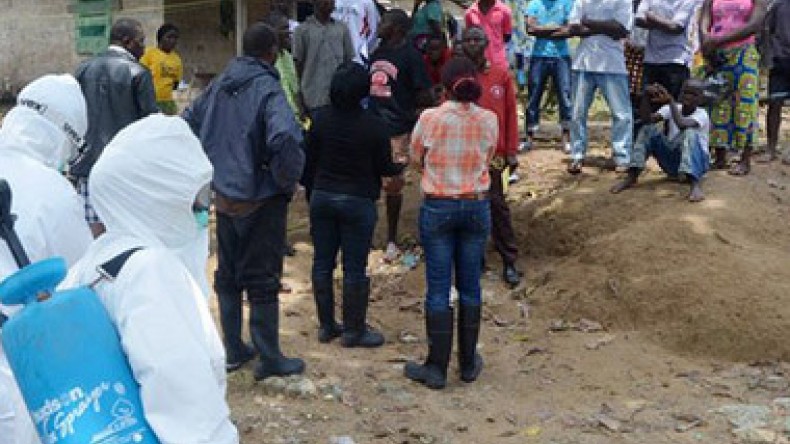
Ebola: Experimental drug ZMapp is '100% effective' in animal trials
The only clinical trial data on the experimental Ebola drug ZMapp shows it is 100% effective in monkey studies, even in later stages of the infection, the BBC reported.
The researchers, publishing their data in Nature, said it was a "very important step forward."
Yet the limited supplies will not help the 20,000 people predicted to be infected during the outbreak in West Africa.
And two out of seven people given the drug have later died from the disease.
ZMapp has been dubbed the "secret serum" as it is still in the experimental stages of drug development with, until now, no public data on effectiveness.
Doctors have turned to it as there is no cure for Ebola, which has killed more than 1,500 people since it started in Guinea.
Researchers have been investigating different combinations of antibodies, a part of the immune system which binds to viruses, as a therapy.
Previous combinations have shown some effectiveness in animal studies. ZMapp is the latest cocktail and contains three antibodies.
Trials on 18 rhesus macaques infected with Ebola showed 100% survival.
This included animals given the drug up to five days after infection. For the monkeys this would be a relatively late stage in the infection, around three days before it becomes fatal.
Scientists say this is significant as previous therapies needed to be given before symptoms even appeared.
One of the researchers, Dr Gary Kobinger from the Public Health Agency of Canada, said this was a huge step up from previous antibody combinations.
"The level of improvement was beyond my own expectation, I was quite surprised that the best combination would rescue animals as far as day five, it was fantastic news.
"What was very exceptional is that we could rescue some of the animals that had advanced disease."
Newsfeed
Videos






























